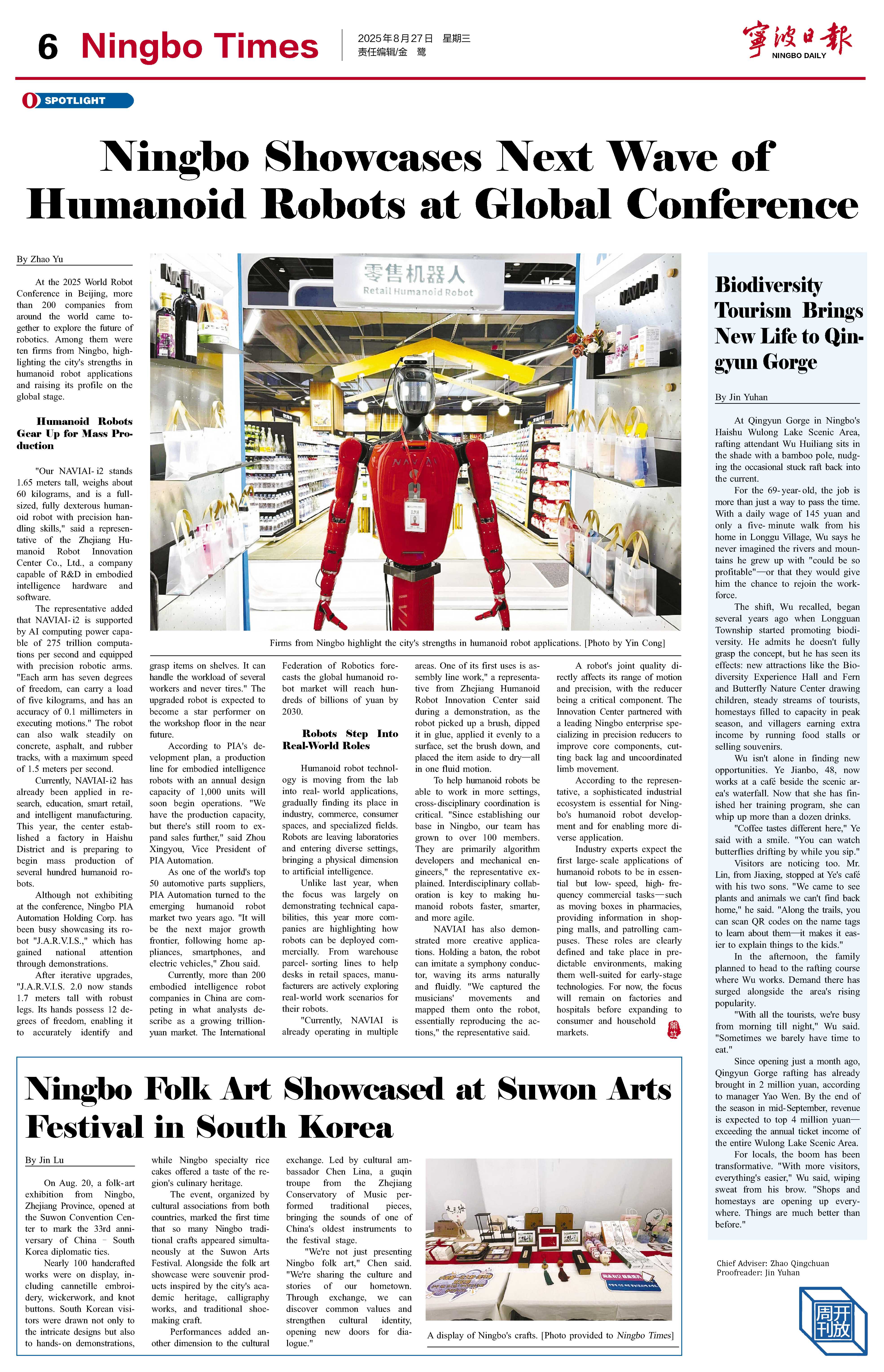By Jin Yuhan
At Qingyun Gorge in Ningbo's Haishu Wulong Lake Scenic Area, rafting attendant Wu Huiliang sits in the shade with a bamboo pole, nudging the occasional stuck raft back into the current.
For the 69-year-old, the job is more than just a way to pass the time. With a daily wage of 145 yuan and only a five-minute walk from his home in Longgu Village, Wu says he never imagined the rivers and mountains he grew up with "could be so profitable"—or that they would give him the chance to rejoin the workforce.
The shift, Wu recalled, began several years ago when Longguan Township started promoting biodiversity. He admits he doesn't fully grasp the concept, but he has seen its effects: new attractions like the Biodiversity Experience Hall and Fern and Butterfly Nature Center drawing children, steady streams of tourists, homestays filled to capacity in peak season, and villagers earning extra income by running food stalls or selling souvenirs.
Wu isn't alone in finding new opportunities. Ye Jianbo, 48, now works at a café beside the scenic area's waterfall. Now that she has finished her training program, she can whip up more than a dozen drinks.
"Coffee tastes different here," Ye said with a smile. "You can watch butterflies drifting by while you sip."
Visitors are noticing too. Mr. Lin, from Jiaxing, stopped at Ye's café with his two sons. "We came to see plants and animals we can't find back home," he said. "Along the trails, you can scan QR codes on the name tags to learn about them—it makes it easier to explain things to the kids."
In the afternoon, the family planned to head to the rafting course where Wu works. Demand there has surged alongside the area's rising popularity.
"With all the tourists, we're busy from morning till night," Wu said. "Sometimes we barely have time to eat."
Since opening just a month ago, Qingyun Gorge rafting has already brought in 2 million yuan, according to manager Yao Wen. By the end of the season in mid-September, revenue is expected to top 4 million yuan—exceeding the annual ticket income of the entire Wulong Lake Scenic Area.
For locals, the boom has been transformative. "With more visitors, everything's easier," Wu said, wiping sweat from his brow. "Shops and homestays are opening up everywhere. Things are much better than before."


